I just got back from the 2013 Kneading Conference West at the Washington State University Mount Vernon Extension Campus.
(My write up of last year's conference, which gives quite a bit of background about it, is here.) 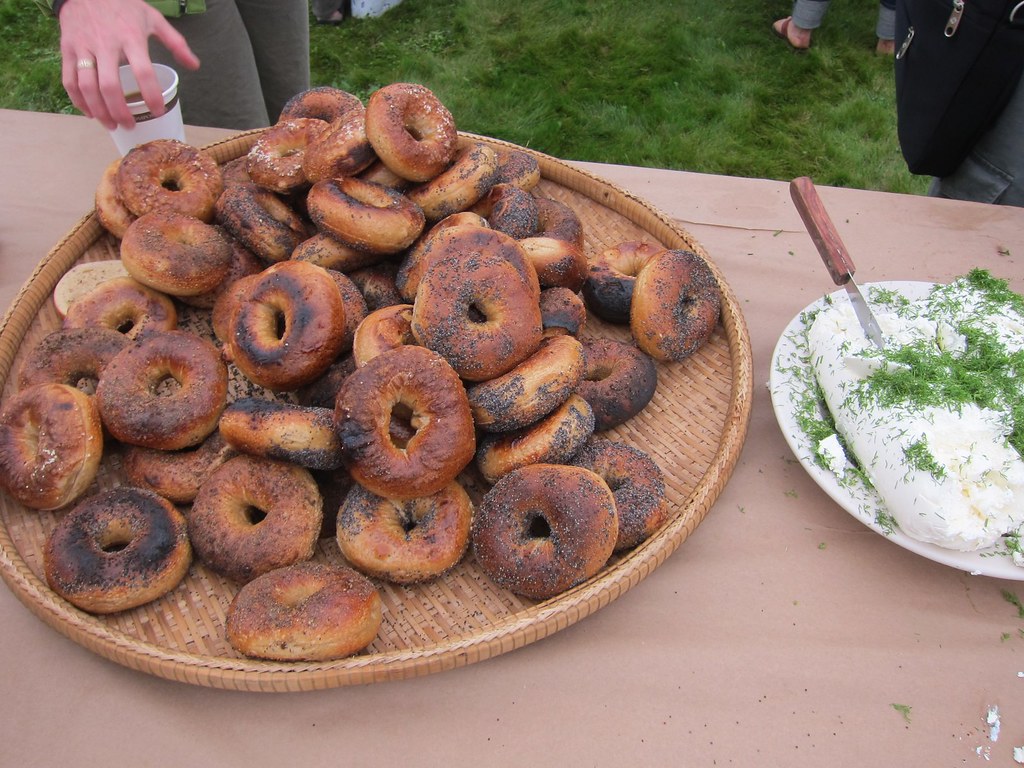
Lots of great food, like these wood oven baked bagels made by Mark Doxtader of Portland's Tastebud Farms, and really nice people. Lots of TFL members and visitors among those friendly people too, many of whom sung the praises of what an awesome, helpful group we have here. So, once again, I tip my hat to all of you who take the time to share your considerably expertise with the rest of us.
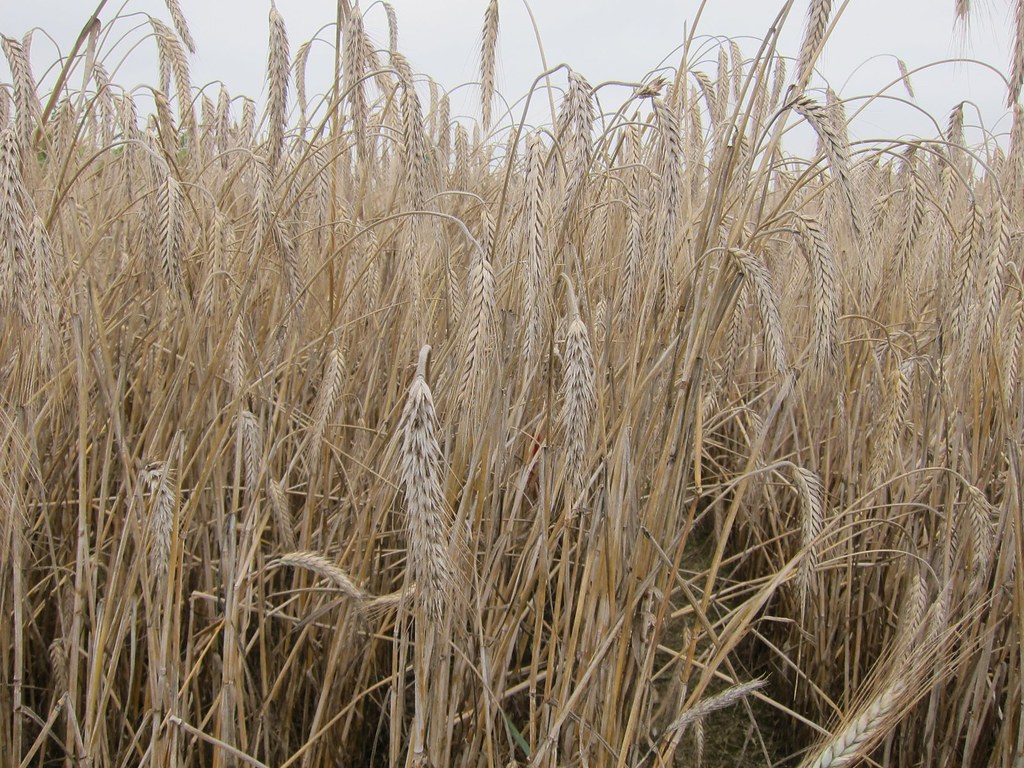
The wheat in their test fields was a little past its prime, but still beautiful to behold.
On a personal level, I took away quite a few things that I'll explore in my baking the next couple of months. But a couple of things I wanted to share with the TFL community.
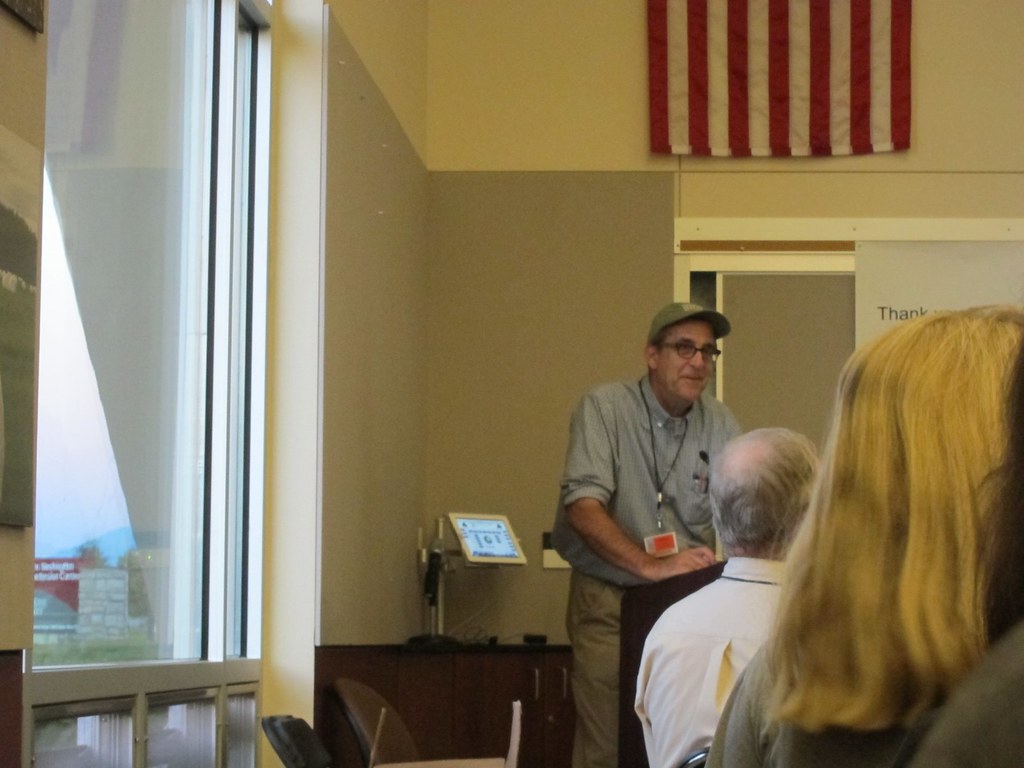
This is Dr. Stephen Jones, the director of WSU Mount Vernon, and the work he is doing to help reestablish a local grain economy in the Pacific Northwest is incredibly exciting. Check out some of the links in the right rail on this page such as his article on "Kicking the Commodity Habit" or the article from the BBGA newsletter on grain production in the Skagit Valley. To see farmers, millers, maltsers, bakers, and researchers all getting together to try to figure out how they can produce better product closer to home is really really exciting.
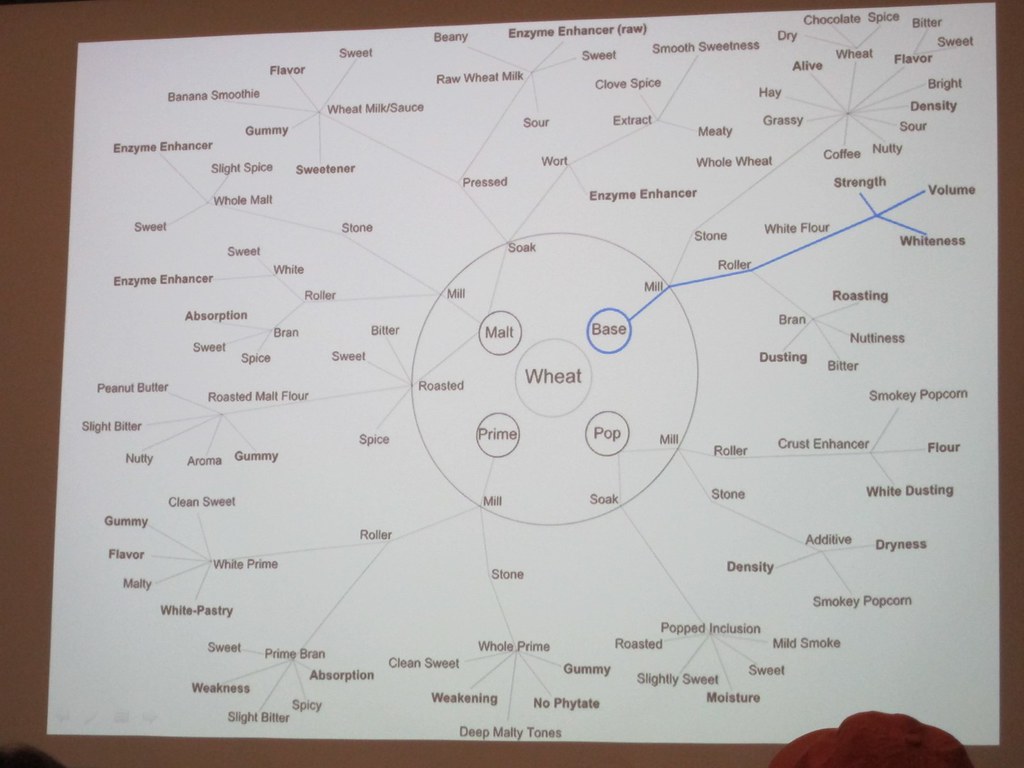
This was one of the slides from Dr. Jones' presentation, something like a flavor wheel for wheat. He made the point that no matter what kind of bread you are baking today, the wheat you are using was bred for roller-milled, strong white flour that makes a voluminous loaf (the branch highlighted in blue). His team and students are trying to identify and establish other standards for other grain uses, so that one day artisan bakers might be able to bake with wheat that had been (non-GMO) bred to emphasize different characteristics of the grain, say its spiceness or sweetness, maltsters with grain bred for what they want to do, and so on. Really thought-provoking, and really exciting to see the way the team here is going about this work.
For an example of local grain production and the role it can play in a community, you couldn't get a much better example that Camas Country Mill in Eugene, Oregon.
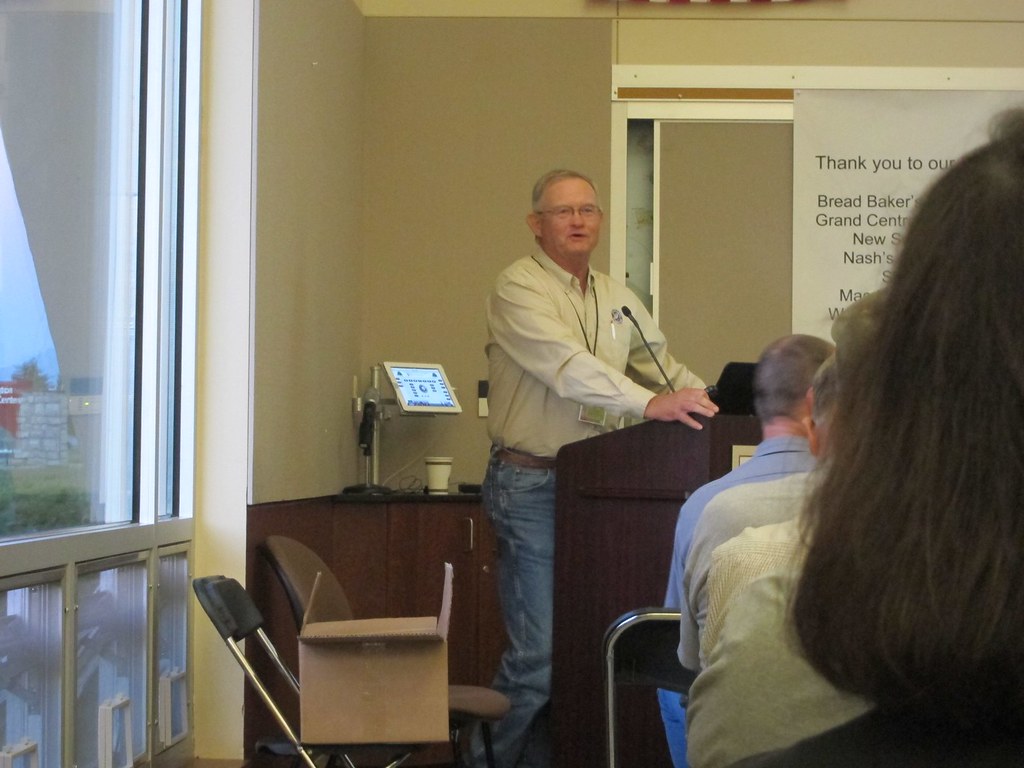
Tom Hunton (above) and his wife Sue run the farm. They've been growing and milling wheat in the Willamette Valley since 2009, selling it to local bakeries, co-ops, and schools, as well as producing grain blends and soup mixes for the Oregon Food Bank and others in need. Their farm has also become a common field trip destination for local schools.
Recently a property down the road that housed a one hundred year old one-room schoolhouse became a target for redevelopment. Rather than see the schoolhouse torn down, the Huntons decided to act and have relocated the schoolhouse to their farm. They are now trying to raise a bit of money to help renovate it so they can use it as an education center for visiting schoolchildren.
The Huntons are really nice people doing the real work to make a sustainable, local, community-based food system actually come together.
I'm going to donate and hope to have a chance to visit their farm and education center on my next trip back to Oregon. I'd encourage other TFL members, particularly those in the Pacific Northwest, to do so as well. Maybe we could donate a brick or two from "The Fresh Loaf Community"?